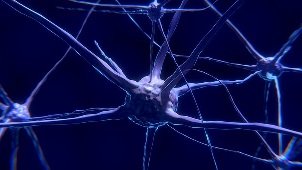The central nervous system is made up of the brain, spinal cord and nerves.
The nervous system is a complex collection of nerves and specialized cells known as neurons that transmit signals between different parts of the body.
Structurally, the nervous system has two components: the central nervous system and the peripheral nervous system. The peripheral nervous system consists of sensory neurons, ganglia and nerves that connect to one another and to the central nervous system.
Functionally, the nervous system has two main subdivisions: the somatic, or voluntary, component; and the autonomic, or involuntary, component. The autonomic nervous system regulates certain body processes, such as blood pressure and the rate of breathing, that work without conscious effort. The somatic system consists of nerves that connect the brain and spinal cord with muscles and sensory receptors in the skin.
